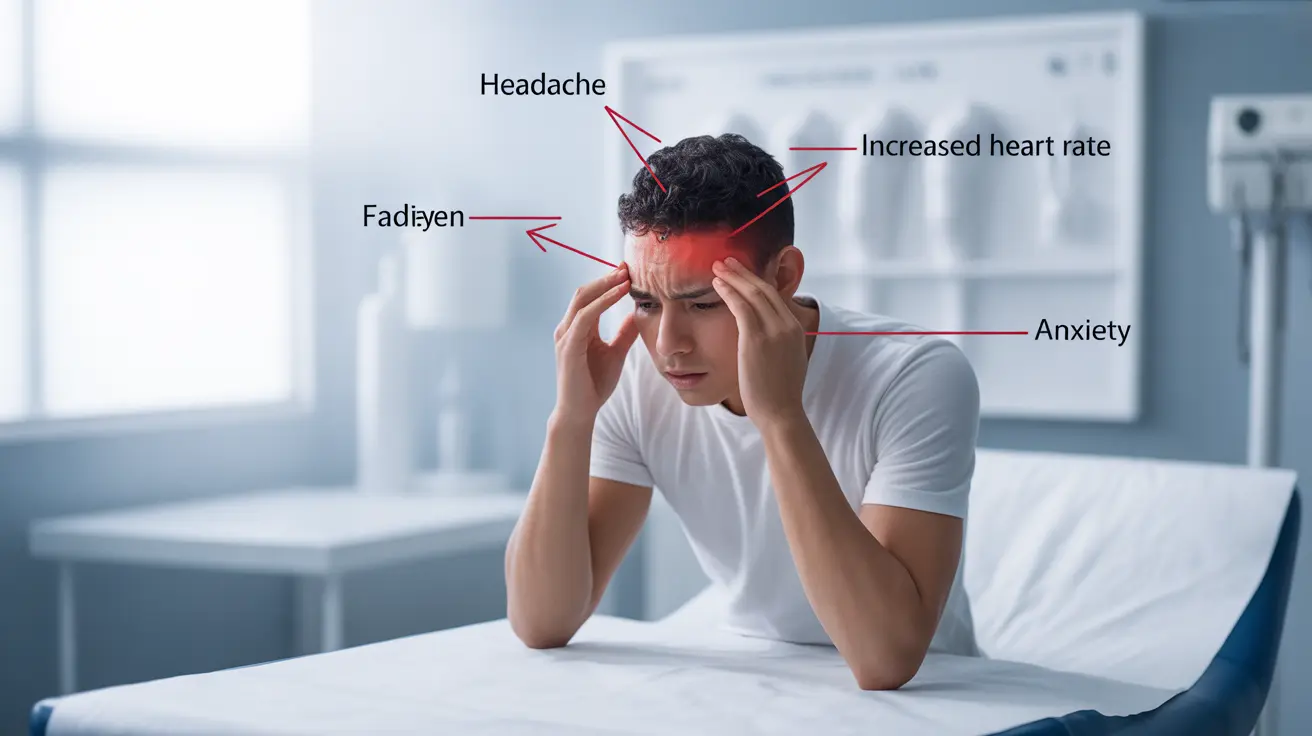Caffeine, a widely consumed stimulant found in coffee, tea, and energy drinks, can lead to dependence and addiction when consumed excessively. Recognizing the symptoms of caffeine addiction is crucial for maintaining overall health and well-being. This article explores the signs of caffeine addiction, its potential impacts, and strategies for managing and overcoming this common issue.
Understanding caffeine addiction symptoms is the first step towards addressing the problem and making informed decisions about your caffeine consumption habits. Whether you're a daily coffee drinker or an occasional energy drink consumer, being aware of these signs can help you maintain a healthier relationship with caffeine.
Common Caffeine Addiction Symptoms
Caffeine addiction can manifest through various physical and psychological symptoms. Recognizing these signs is essential for identifying a potential problem:
Physical Symptoms
- Headaches when caffeine intake is reduced
- Fatigue or drowsiness
- Difficulty concentrating
- Irritability or mood swings
- Tremors or jitters
- Increased heart rate or blood pressure
- Digestive issues, such as upset stomach or nausea
Psychological Symptoms
- Strong cravings for caffeinated beverages
- Anxiety or restlessness
- Difficulty sleeping or insomnia
- Feeling dependent on caffeine to function normally
- Inability to reduce caffeine consumption despite attempts
The Impact of Caffeine Addiction on Daily Life
Caffeine addiction can significantly affect various aspects of your daily routine and overall well-being:
Sleep Disruption
Excessive caffeine consumption, especially later in the day, can interfere with your sleep patterns. This can lead to insomnia, reduced sleep quality, and daytime fatigue, creating a cycle of increased caffeine dependence.
Mood and Anxiety
While caffeine can provide a temporary boost in mood and alertness, addiction can lead to increased anxiety, irritability, and mood swings, particularly when experiencing withdrawal symptoms.
Productivity and Focus
Although caffeine is often used to enhance productivity, addiction can result in difficulty concentrating and decreased cognitive performance when caffeine levels in the body drop.
Managing Caffeine Addiction
If you recognize caffeine addiction symptoms in yourself, there are several strategies you can employ to manage and overcome the addiction:
Gradual Reduction
Slowly decreasing your caffeine intake over time can help minimize withdrawal symptoms and make the process more manageable. Try reducing your consumption by 25% each week.
Hydration
Increasing your water intake can help alleviate some withdrawal symptoms, such as headaches, and support your body's natural detoxification processes.
Alternative Energy Sources
Explore natural ways to boost energy, such as regular exercise, a balanced diet, and ensuring adequate sleep. These habits can help reduce your reliance on caffeine.
Stress Management
Implement stress-reduction techniques like meditation, deep breathing exercises, or yoga to help manage anxiety and mood swings associated with caffeine withdrawal.
Preventing Caffeine Addiction
Taking proactive steps to prevent caffeine addiction can help you maintain a healthier relationship with caffeinated beverages:
Set Limits
Establish a daily caffeine limit for yourself, adhering to recommended guidelines of no more than 400mg per day for most adults.
Monitor Intake
Keep track of your caffeine consumption from all sources, including coffee, tea, energy drinks, and even chocolate.
Choose Alternatives
Experiment with caffeine-free beverages like herbal teas or decaf options to reduce your overall caffeine intake while still enjoying your favorite drinks.
Practice Mindful Consumption
Be aware of why you're reaching for caffeinated beverages. Are you truly in need of an energy boost, or is it a habit? This awareness can help you make more conscious choices.
Frequently Asked Questions
- What are the symptoms of caffeine withdrawal, and how long do they typically last?
Caffeine withdrawal symptoms can include headaches, fatigue, irritability, difficulty concentrating, and in some cases, mild depression. These symptoms typically begin 12-24 hours after the last caffeine intake and can last anywhere from 2 to 9 days, with peak intensity usually occurring around 24-48 hours.
- How can I manage or reduce caffeine withdrawal symptoms effectively?
To manage caffeine withdrawal symptoms, gradually reduce your caffeine intake over time rather than quitting cold turkey. Stay well-hydrated, get plenty of rest, engage in light exercise, and consider over-the-counter pain relievers for headaches. Herbal teas or decaf options can also help satisfy the habit without the caffeine.
- Are there any natural remedies or supplements that can help alleviate caffeine withdrawal headaches?
Some natural remedies that may help with caffeine withdrawal headaches include peppermint or ginger tea, staying hydrated, applying a cold or warm compress to the head, and getting adequate rest. Supplements like magnesium or B-complex vitamins may also provide relief, but consult with a healthcare provider before starting any new supplement regimen.
- Can caffeine withdrawal cause anxiety or depression, and how can I cope with these symptoms?
Yes, caffeine withdrawal can temporarily increase feelings of anxiety or mild depression in some individuals. To cope, practice stress-reduction techniques like deep breathing, meditation, or gentle yoga. Engage in regular exercise, maintain a balanced diet, and ensure you're getting enough sleep. If symptoms persist or worsen, consult a healthcare professional.
- How can I prevent or minimize the risk of caffeine addiction and related withdrawal symptoms in the first place?
To prevent caffeine addiction, set and adhere to daily limits on caffeine consumption, avoiding exceeding 400mg per day. Be mindful of your caffeine sources and try to avoid consuming caffeine late in the day. Regularly incorporate caffeine-free days into your routine to prevent tolerance build-up, and focus on maintaining overall health through proper nutrition, exercise, and sleep habits.




